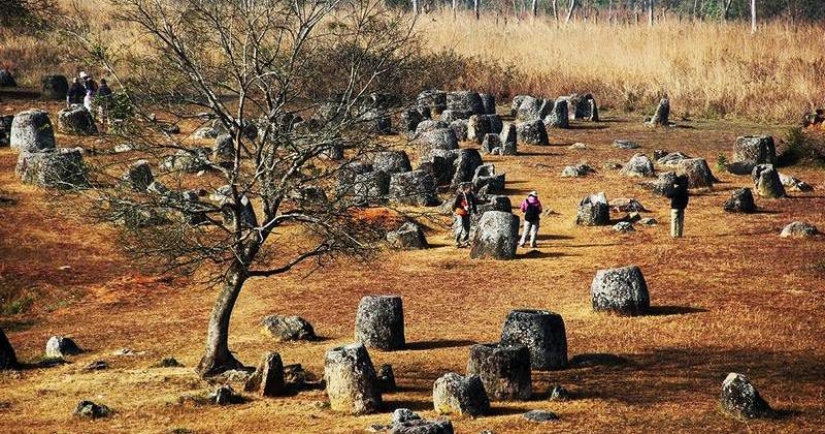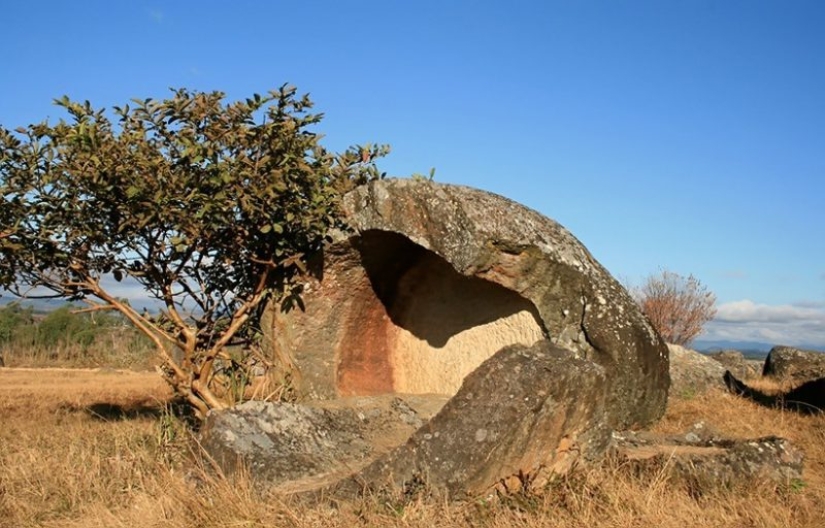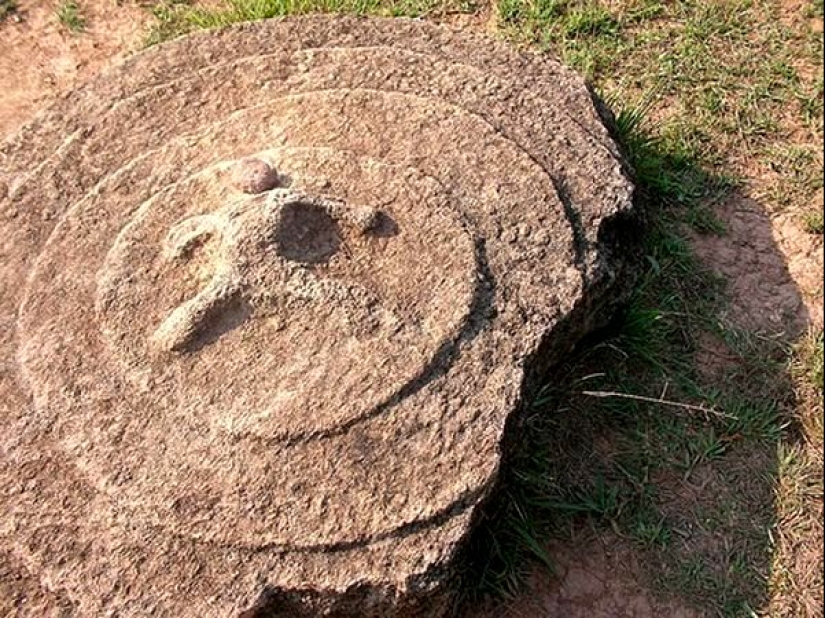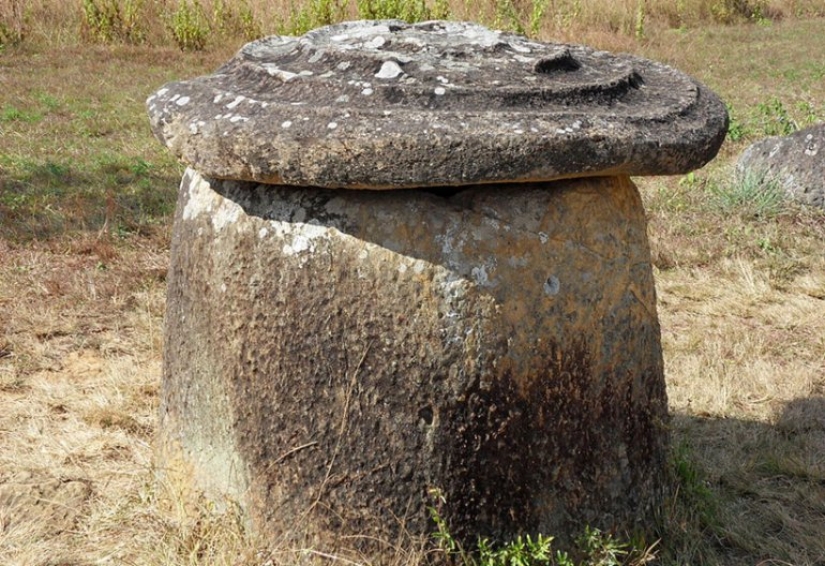"Jugs of the dead" found in remote mountain forests of Laos
Categories: Asia | History | Science | World
By Pictolic https://pictolic.com/article/jugs-of-the-dead-found-in-remote-mountain-forests-of-laos.htmlThe places of Southeast Asia, remote from civilization, hide many secrets and riddles that they are in no hurry to part with. In one of the mountainous regions of Laos, unique objects were found that had been lying in plain sight for a thousand years, but were not noticed by anyone. About 100 massive stone jars have been dispersed in forests in 15 different places and scientists have yet to unravel their ancient secrets.

The main version of the representatives of science says that the jugs were used by the inhabitants of this area of Laos many centuries ago for burials. Of course, so far this is just an assumption, not confirmed by facts. PhD student Nicholas Skopal, one of the participants of the expedition to study these objects, told reporters that the places where the stone jars are hard to reach, which explains their so late discovery.
Another member of the expedition, archaeologist Dougald O'Reilly (Dougald O'Reilly), added that no one knows why the massive stone jars were brought to these remote places and before that scientists did not suspect the presence of any traces of ancient cultures in this part of Laos.
The expedition of the Australian National University unearthed 137 stone jugs, as well as stone carved discs that someone placed around the containers in a certain order. Some disks were lying with the carved part up, and others — down. Judging by the shape and dimensions, they could well serve as lids for jugs.

So in an interview with the press, O'Reilly described the details of the find. He mentioned that a lot of Iron Age artifacts, such as ceramics, glass beads and iron tools, were found next to the jugs. Most of the tools are designed for sewing and processing leather.

The archaeologist said in his short interview. He explained that he considers jugs to be part of burials, because he has repeatedly encountered a similar method of burial in Assam, India, Sulawesi, Indonesia and many other regions of Asia. The scientist is sure that this suggests that in ancient times there was a close connection between these regions.

Judging by the finds made in different parts of the hemisphere, people began to bury their dead in jars no later than 900 BC. This tradition has proved to be very persistent — the last of the graves of this type found was dated to the XVII century AD. The dead were placed inside a clay or stone jug on the side and surrounded with household and ritual objects necessary in the afterlife.
Many pundits are of the opinion that burial in a jug is the second stage of farewell to the deceased. Many peoples of Southeast Asia still believe in a very smooth transition of a person from a living state to a dead one, so they keep the corpse at home for a long time, watching its gradual decomposition. Probably hundreds of years ago, the placement of remains in jars occurred after the complete rebirth of the deceased, when he turned into a skeleton or mummy.
Recent articles

It's high time to admit that this whole hipster idea has gone too far. The concept has become so popular that even restaurants have ...

There is a perception that people only use 10% of their brain potential. But the heroes of our review, apparently, found a way to ...

New Year's is a time to surprise and delight loved ones not only with gifts but also with a unique presentation of the holiday ...